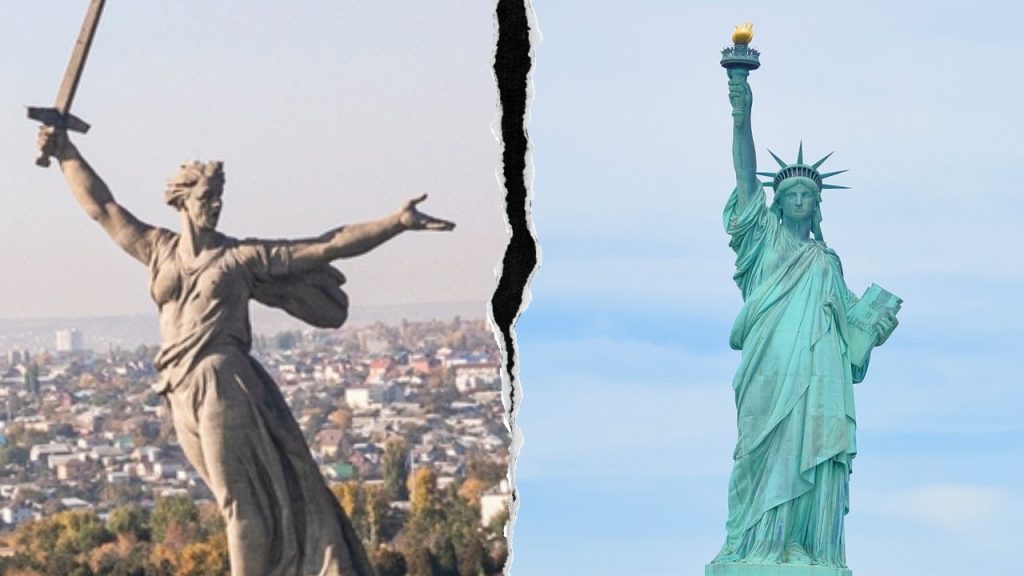Уро́к 6
6.6 Грамма́тика – Comparative Adjectives, Part III
Грамма́тика
In English there are two ways to compare entities: either by adding the suffix -‘er’ to the basic one- or two-syllable adjective, or by adding the word ‘more’ before the basic, polysyllabic adjective:
- bigger, faster, stronger
- more beautiful, more interesting, more talented, more serious
In Russian there are also two ways to make a comparative adjective, but the rules are not like they are in English. In Russian, SOME adjectives have MUTATED comparative forms and others just add -ее to the adjective stem.
A. Recall, you have learned 4 basic comparatives that look almost nothing like the basic, non-comparative adjective:
лу́чше ‘better’ (cf. хороший)
ху́же ‘worse’ (cf. плохой)
бо́льше ‘bigger’ (cf. большой)
ме́ньше ‘smaller’ (cf. маленький)
B. You have also learned that the comparative degree for many adjectives is made by adding -ее to the adjective stem, as in:
краси́вее ‘more beautiful’
интересне́е ‘more interesting’
нове́е ‘newer’
тала́нтливее ‘more talented’
холодне́е ‘colder’
BUT … as you know, language rules are often not so simple and clear. As it turns out, there is more to know about comparative adjectives in Russian:
C. There are several adjectives that have neither of the above forms and they, like the first 4, must be memorized. They have what are called ‘stem mutations’.
You will learn just a few of these this unit and they should be part of your active vocabulary.
к > ч
лёгкий » ле́гче ‘easier / lighter’
коро́ткий » коро́че ‘shorter’
жа́ркий » жа́рче ‘hotter’
б(о)к > ж
глубо́кий » глу́бже ‘deeper’
с(о)к > ш
высо́кий » вы́ше ‘taller / higher’
——
*NOTE!
ста́рый » старе́е and ста́рше (from ста́рший) are both possible for ‘older’
When comparing relative ages of people, you will use ста́рше:
Ми́ша ста́рше Са́ши.
Misha is older than Sasha.
AND
молодо́й » моло́же and мла́дше (from мла́дший) are both possible for ‘younger’.
When comparing relative ages, you will use мла́дше:
Са́ша мла́дше Ми́ши.
Sasha is younger than Misha.
Examples of comparative adjectives of the -е type with stem mutations
[ADD MORE with other words above!]

| Ста́туя ‘Ро́дина-мать’ в Росси́и вы́ше Ста́туи Свобо́ды в США. |
| ста́рый > ста́рше | |
| [AUDIO NEEDED!] | старый > старе́е |
| молодо́й > мла́дше | |
| молодо́й > моло́же |
*Both старше and страрее and мла́дше and моло́же are valid comparative forms, meaning ‘older’ and ‘younger’, respectively, but the way they are used differs. Note the following examples.
|
|
Брат мла́дше сестры́. The brother is younger than (his) sister. Мама старше папы. |
BUT:
| NEW AUDIO NEEDED!
NEW AUDIO NEEDED! |
Же́нщина моло́же, чем вы ду́мали. The woman is younger than you thought.Каждый день я становлюсь старее, лысее и толще. Every day I get older, balder, and fatter. |
Media Attributions
- Statues

